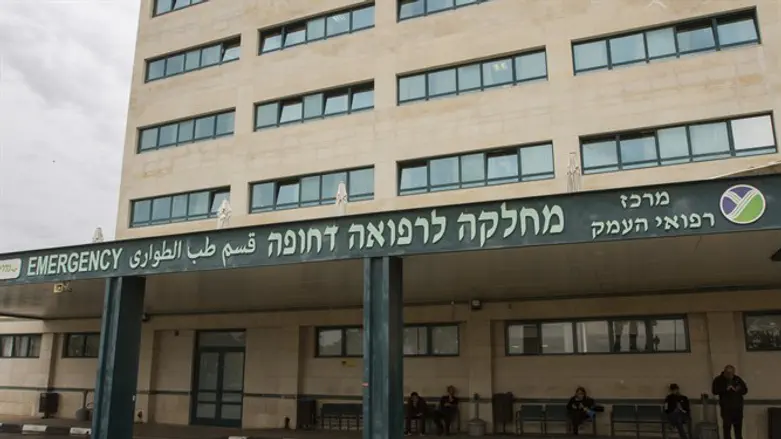
A religious Jew hospitalized with coronavirus at Ha'emek Medical Center in northern Israel said his final prayers with the help of a Muslim nurse by his side.
The patient had been waiting for his family to arrive at his side, but because of the snowstorm, his family was trapped in traffic jams.
Maheer Ibrahim, the head nurse in Ha'emek's coronavirus ward, decided to take the initiative and read the "Shema Yisrael" prayer together with the patient, helping him through his last moments.
In a conversation with 103 FM Radio, Ibrahim noted, "It may sound touching, but I thought that this was what needed to be done for him."
"His family was making the long journey from the Netanya area to Afula, and the entire time we were praying that they would manage to make it and be with him in his final moments. Unfortunately, death came before they did, because they were trapped in traffic jams.
"In my experience, in my work in the hospital, I've been witness to a lot of situations in which people are about to die, from all religions. And I know that for many people that last prayer, at least, is really important to them," he said, noting that he took two courses on Judaism when studying for his M.A. in Ben Gurion University.
"I stood beside his head and I said Shema Yisrael with him, and when his daughter came - when she came it was already very late, and he had already died. When the doctors told her that he had died, I felt like she felt something was missing, and I had to tell her. So I told her, 'Listen, I don't know if it was accepted or not, because I'm a Muslim and he's a Jew, but I want to tell you that I said this, and maybe it'll do good for you. So you should know that these are the last words that he heard - if he heard at all, I don't know - and these are the words I said to him."
He added: "His daughter called me the day after his death and said that my act was the only thing that gave her comfort."
"It warmed my heard to know that it did good for her," he concluded, noting that he had seen tears in her eyes after he told her of the event. "We need to be there as people, before we're there as healthcare providers."
